Articles, intermittent fasting, Mucus-free Lifestyle, Mucusless Diet, Videos, Writings about Arnold Ehret
Addiction to Pus and Mucus-forming Foods: Stages of Dependency and Recovery
The greatest addiction of all time is most definitely pus/mucus-forming foods. Brother Air (famous Mucusless Diet practitioner) often says that trying to overcome a mucus addiction makes hardcore illegal drugs look like getting off of Skittles. The reality is that it will take a long time to overcome the addiction so it is important to not be hard on yourself. As cravings for wrong foods arise, understand that they are only the expression of poisons that are circulating through your bloodstream. You are not your addiction to mucus, and over time as those poisons dissipate, you will no longer crave the foods that cause harm to your body.
During my mucusless transition over the years, I’ve often found myself watching documentaries about addiction or reading books about addiction recovering. I realized early on that pus and mucus was the foundation of my other addictions, including tobacco, alcohol, etc. As I began to eliminate mucus from my diet and transform my physiology, the desire for these intoxicants vanished. I never forced myself to stop drinking or smoking, but I no longer wanted to do so as I became cleaner. It was clear to me that if it was possible to clean my body through a mucus-free diet and intermittent fasting, then minor addictions would fall by the wayside.
As I progressed with my transition, I noticed that my experiences seemed to correlate with those discussed in commonly used models of addiction. Seven steps of alcoholism, seven steps of cocaine addiction, the 12 Steps, five stages of grief, etc., all became very relatable. Yet, this way of thinking had yet to effectively be applied directly to what many Mucusless Diet practitioners consider the “original gateway drug,” i.e. pus and mucus.
My proposition is that pus and mucus is the gateway drug. If you do not agree with this statement, then simply try to stop eating pus and mucus for a long period of time. If you were able to do this, which is unlikely without having first transitioned, then see if you continue to want other drugs. What you may realize is that it is very hard to stop eating mucus-forming foods. Ultimately, it takes a long time and dedicated effort to overcome an addiction to mucus/pus-forming foods.
In the following video series I explore the nature of pus and mucus addiction. Drawing from original models of addiction from psychiatry, addiction studies, and cognitive behavioral therapy, I theorize about the stages/steps of mucus/pus addiction and the recovery process from it.
Below I provide relevant notes interspersed between the video discussions.To get the most out of this post I encourage you to watch the videos and simultaneously consider the notes. Also, the inspiration for the following comes from Arnold Ehret’s Mucusless Diet Healing System. If you have not yet read this book, I strongly encourage you to obtain a copy and check it out.
Take the following theoretical models for what they are worth. This is not meant to be a strict scientific study, but an exploration of concepts related to overcoming a mucus/pus addiction. If this notion of mucus-eating is new to you, keep an open mind as we move forward. The aim is to help you better understand the nature of a mucus-addiction and the process of recovery from it.
Addiction to Pus and Mucus-forming Foods: Part 1 Stages of Dependency and Recovery
Stages of Addiction
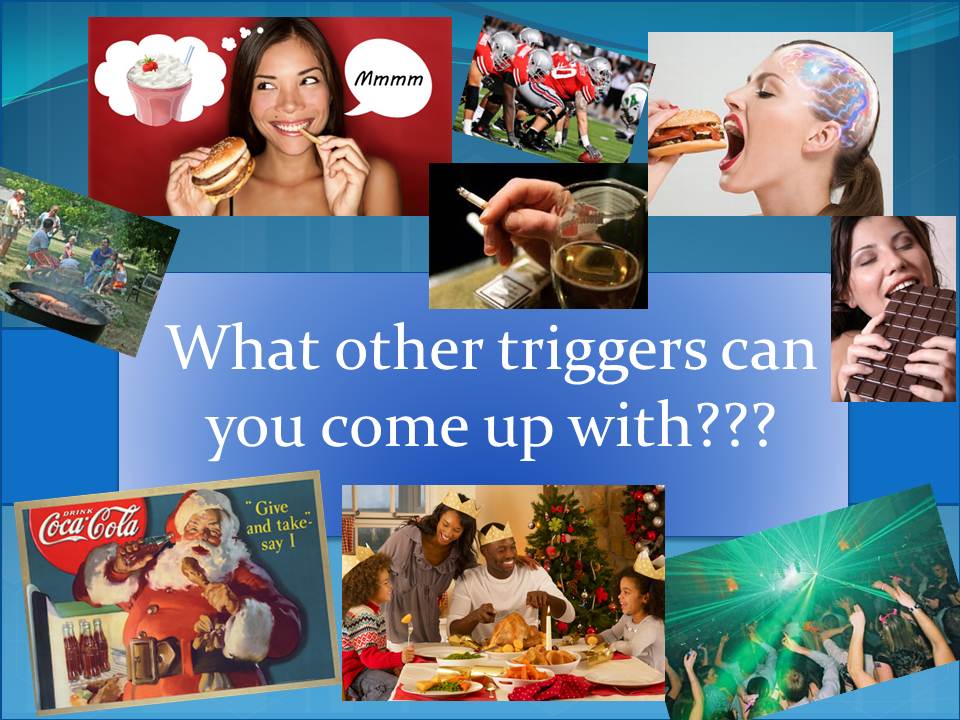 Addiction to Pus and Mucus-forming Foods: Part 3 Stages/Steps of Addiction
Addiction to Pus and Mucus-forming Foods: Part 3 Stages/Steps of Addiction
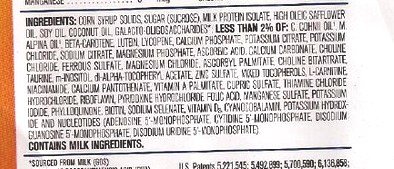
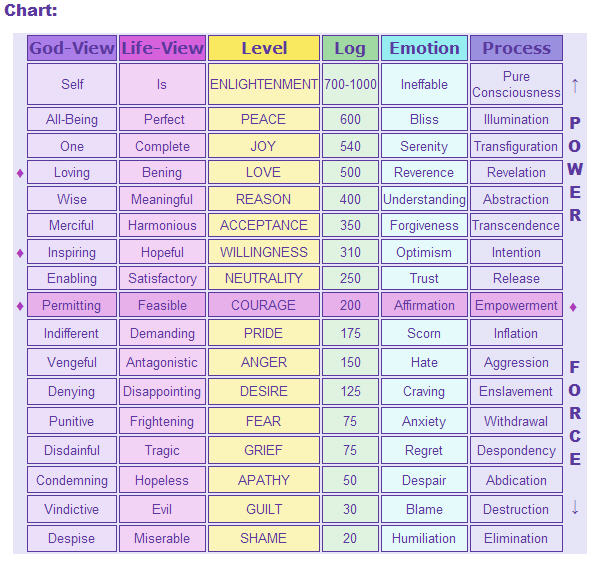 *From David Hawkin’s Power vs. Force.
Visit our bookstore:
*From David Hawkin’s Power vs. Force.
Visit our bookstore:
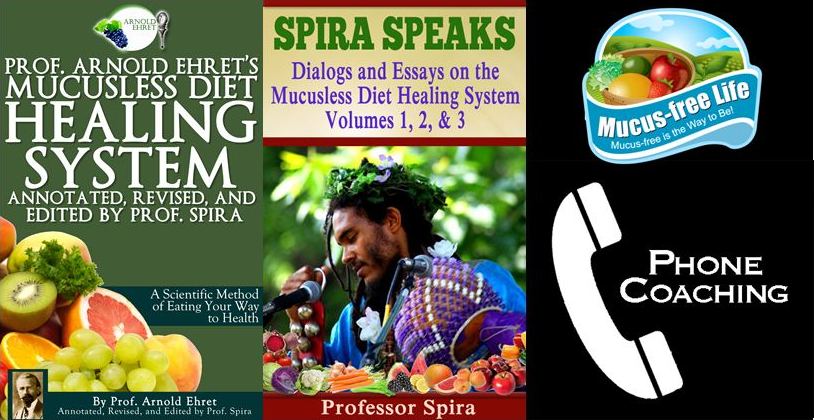
- Many models and theories about addiction exist.
- This program program draws upon classic models but adapts them to the condition of pus/mucus addiction.
- Models
- Moral/temperance, disease, personality, social education, cultural, habit, etc.
- Blended model
- Considers elements of various models in developing a therapeutic approach to dependency.
- Primary Influences for this study include
- Kübler-Ross’ “Five Stages of Grief”
- 7 Stage Addiction Models
- 12 Style Addiction Programs
- Mucusless Diet and Mucus-principle as the Foundation of human addiction.
- “Every illness, no matter what name it is known by medical science, is CONSTIPATION”:A clogging up of the entire pipe system of the human body with: Mucus, Pus, Uric acids, toxemia, etc.
- Mucus addiction is a state of periodic or chronic overstimulation produced by the repeated consumption of pus and/or mucus-forming foods.
- Its characteristics include:
- (i) an overpowering desire or need (compulsion) to continue eating pus/mucus by any means necessary
- (ii) a tendency to increase the amount
- (iii) a psychic (psychological) and generally a physical dependence on the effects of the pus/mucus
- (iv) detrimental effects on the individual and on society.
- *1957 World Health Organization (WHO) Expert Committee on Addiction-Producing Drugs
- Mucus habituation (habit) is a condition resulting from the repeated consumption pus and/or mucus.
- Physical dependence is a state of being that is manifested by mucus/pus forming foods causing specific withdrawal symptoms that emerge when not regularly consumed.
- Tolerance is the body’s physical adaptation to mucus: greater amounts of mucus are required over time to achieve the initial effect as the body “gets used to” and adapts to the intake.
- The addictive potential of a mucus-causing food varies from item to item, and from individual to individual.
- Triggers: anything that sparks an emotional response in addicts that in turn lead them to a thought that their substance of choice will calm them.
- The trigger can cause stress, sadness, or glee.
- Relapse
- RELAPSE: To fall or slide back into a former state after a period of improved conditions or behaviors.
- Major Pus and/or Mucus Relapse triggers:
- Wrong social environments/circumstances
- Esp. those that remind you of your old habitual patterns.
- Media depictions of pus/mucus eating.
- Smell of foods/seasonings.
- Feeling lonely or left out of an old social group.
- What other triggers can you come up with???
- Wrong social environments/circumstances
 Addiction to Pus and Mucus-forming Foods: Part 3 Stages/Steps of Addiction
Addiction to Pus and Mucus-forming Foods: Part 3 Stages/Steps of Addiction
- Stage 1: Initial Use
- Infancy through early childhood
- Among communities where pus and mucus-eating is normalized, a baby is transitioned into pus and mucus-eating over a period of time. Babies start out as liquidarians, consuming only liquids, and slowly begin to eat purees and some soft whole foods (perhaps in the past foods were partially masticated by the mother during this stage).
- In mucus-eating Western societies, store-bought formulas that combine many questionable ingredients allow an infant to transition toward society’s mucus-forming diet.
- Infancy through early childhood

(Ingredients of famous baby formula that includes corn syrup, sugar, milk, soy, etc., all mucus-forming.)
- Stage 2: Early Stage of Dependency
- Preadolescence
- In this stage, the addiction to, and desire for mucus, increases. Although children may have a natural desire for sweet fruits, processed candies, ice creams, sodas, etc., can often quench this desire. Further, social conditioning often leads children to believe that fruits and vegetables are a chore to eat, while unnatural sweets are preferable.
- The eating of pus and mucus can often result in negative behaviors, such as excessive aggressiveness, inability to focus or sit still, fatigue, etc. However, a mucus-ridden diet is usually not considered as the problem to these issues, and the proposed treatment by an allopathic practitioner may be poisonous drugs.
- Preadolescence
- Stage 3: Middle Stage of Dependency
- Adolescence and Early Adulthood
- By this stage mucus and pus eating is totally normalized. Consequently, the body may become more constipated with mucus and/or uric acid.
- In modern times, adolescents graduate secondary school and may go onto college or into the workplace. The person now has more autonomy, especially regarding what they choose to eat. College students are known for making poor eating decisions, in fact it is embedded into the socialization process to over “eat, drink, and be merry.” If a person takes on this outlook, they can do lasting damage to their physiological wellness.
- Adolescence and Early Adulthood
- Stage 4: Crisis Stage of Dependency
- Adulthood into Old Age
- Although it is customary for this crisis stage to hit later in life, it can come sooner. In this stage the human organism is overcome with mucus and toxemias after a lifetime of pus and mucus-eating. The wear and tear of acids on the body and its internal organs can result in a very painful existence.
- Adulthood into Old Age
- People feel that they do not have a problem concerning pus and mucus-eating.
- Believe that they have complete control over the situation.
- Can emerge after becoming aware of the Mucusless Diet/Mucus Theory
- Can also emerge after a relapse
- Those that have tried the mucusless diet sometimes are in denial about how long the transition will take.
- An addict may say:
- “This can’t be real! That sounds crazy!”
- “I love meat/cheese and will never give it up!”
- “I could stop eating mucus today if I really wanted to.”
- Relates to how abusers get upset because they have a mucus addiction or are angry that they can no longer eat mucus.
- Addicts might say:
- “I don’t want to have this addiction anymore.”
- “This isn’t fair, I’m too young/old/smart/strong/happy/sad/spiritually advanced/etc. to stop eating pus/mucus
- “I just want to be like everyone else, eat mucus and be HAPPY!”
- Physical aggression, screaming, beating a pillow/bed, etc. may manifest itself during this stage.
- During this stage, the mucus/pus addict begins to realize how vital it is to overcome mucus-eating.
- Because of this, the individual may become silent, refuse visitors, and spend time crying.
- This process allows the addict to disconnect from things of love and affection connected to mucus/pus eating.
- It is not recommended to attempt to cheer up an individual who is in this stage, although being supportive and available if needed is very important.
- Important: each case and person is different. If you feel that someone may get too low and hurt themselves then take a rational course of action to help prevent this.
- Depression is a kind of acceptance with emotional attachment. It’s natural to feel sadness, regret, fear, and uncertainty when going through this stage. Feeling those emotions shows that the person has begun to accept the situation.
- It is not recommended to attempt to cheer up an individual who is in this stage, although being supportive and available if needed is very important.
- “I’m so sick and sad, why bother with anything?”
- “I just want to go home.” (although they are already where they live)
- This is the stage that the pus/mucus addict goes through when they are trying to convince themselves or someone else that they are going to stop eating pus/mucus in order to get something out of it or themselves out of trouble.
- “I promise I’ll never eat mucus again if I can just feel some relief.”
- “I’ll be vegan if I can eat meat every once in while.”
- Extreme cold-turkey attempts to stop followed by relapse (lack of transition)
- Accepting that you have a mucus/pus addiction and realizing that you can begin the process of resolving the issue (transition).
- Difference from admitting you have a problem.
- The recovering addict might say:
- “It’s going to be okay.“
- “I can’t fight it, I may as well prepare for it and begin transitioning.”
- Physiological Liberation: term coined by Brother Air that refers to a state of physiological excellence and cleanliness whereby a person becomes immune to human illness. It is the full actualization of the physical potentials of a person where they become free of their addictions to all unnatural forms of stimulation, especially pus/mucus-forming foods.
- Physical impossibility to eat mucus/pus combines with having no desire to eat it.
- Impossibility to become ill.
- AKA Physiological Enlightenment
 *From David Hawkin’s Power vs. Force.
Visit our bookstore:
*From David Hawkin’s Power vs. Force.
Visit our bookstore:

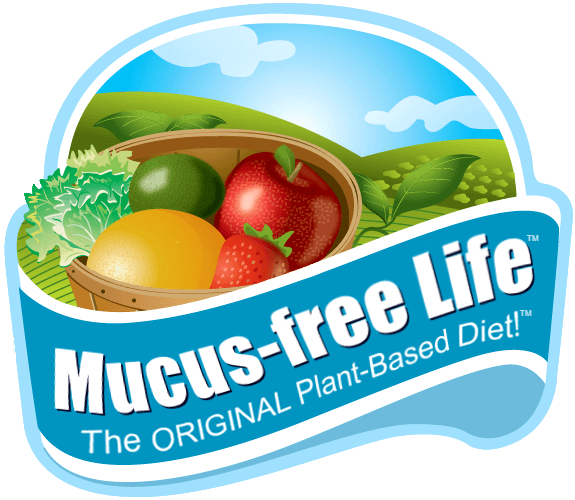


Hello Prof.Spira!
You are doing a great work really!
Ciao
Bayram
Québec-Canada
I just finished the reading of your annotated and revised edition, I would like to congratulate you for the beautiful work. The ideas of Ehret are so more clear with your job. Here in Brazil we do not have the Ehret work in Portuguese language, but with the understanding from your work, and the amazing results in my body and my yoga practice, I will talk a lot about to my students.
First I would like to thank Professor Spira for his mucus/pus addiction post! At present I am still addicted to fats. Fat is the only mucus food I consume now. I gave up meat 32 years ago, dairy & starches 16 months ago. The longest I have gone without any mucus forming foods at a time, is over 6 weeks. During the past 32 years I have been vegan around half that time (15 years) bouncing back and forth between vegetarian and vegan with a total of around 7 or 8 years raw, off and on . Have been raw again for the past 16 months. Some of us battle with two hard core addictions, cooked food and mucus forming foods. I have over come 3 out of the 4 classified mucus food groups. However, I finally had to go raw and stay raw, for if I consume any cook foods what-so-ever, I get re-addicted and I don’t just eat cooked veggies but fall back on grains and dairy. So I have found the best way for me to master this mucusless diet is to slowly let go of the last category of mucus food (fats) because right now the fats keep me raw and cooked is not an option for me personally (because of the re-addiction problem) but I keep chipping away at my fat mucus addiction and I feel with time I will reach my goal. With 3 out of 4 mucus foods gone from my diet and the addiction of cooked food held at bay by eating raw, I feel I have a real fighting chance at mastering this program in the future. This is a life long process, not something that can be done in a few months or even just a few years.
Thank you for sharing your story Sunny!
Pingback: World Record for Going Without Food | Professor Arnold Ehret - Mucus-free Life
Pingback: Prof. Spira's Mucusless Diet Food List - Mucus-free Life
Pingback: Are Avocados Mucus forming? - Mucus-free Life
Pingback: Food Addiction/BED/Gluten - FitDay Discussion Boards
Hey Dr. Spira, one of the thing people tell me everytime is (sorry if you don’t understand well, I translate from french to english) :
“You are totally wrong, we are omnivores we need to eat a bit of everything, my grandmother ate a lot of different things, she smoked and died at 98”.
“Everything is relative, everyone has his own truth”.
“Science says different things”.
Good ones for the denial stage ;).
Exactly.
Oh I forgot,
I had a conversation few days ago with a paleo who told me to read Dr. Bass website (he does experiences on rats for proving that we are not a fruitarian specie but rats are not monkeys …), he says too that monkeys are eating a lot of meat and that caveman’s painting on the caves represents us hunting so that we are meat eaters (but I’ve read in a book that orang outang are 100% fruitarians in the Durian’s season in Thailand, I think that monkeys are in a too much unnatured environment to judge objectively what they’re eating).
He takes the story of Inuits who eat quasi-exclusively meat and where in good shape and lived long and strong according to him before Europeans addicted them to alcohol.
When I give him that text he doesn’t even read it : http://fr.scribd.com/doc/17111888/Science-Verifies-That-Humans-Are-Frugivores
Yeah, I’m certainly not a fan of Dr. Bass. And people continue to interpret human history and anatomy in ways that support their concept of what is a “natural” human.
Pingback: Overcoming Marijuana Addiction through the Mucusless Diet
Pingback: Overcoming Marijuana Addiction | Mucus Free Life
Pingback: Raw Foods - How Important is it to Eat all Raw?
Pingback: Baked Banana Recipe & Dealing with Food Relapse on the Mucusless Diet
I currently suffer from hypertension, HSV, pre-diabetes, and hypercalcemia and I’m trying to transition my body to optimal health in order to conceive/birth a healthy child. I’m wondering how a mucusless diet could potentially affect my body throughout pregnancy and nursing. I’ve read that some women have experienced toxins being released into their milk while they were transitioning to a mucusless diet. Do you have any warnings about transitioning or sustaining a mucusless diet for expectant and/or nursing mothers?